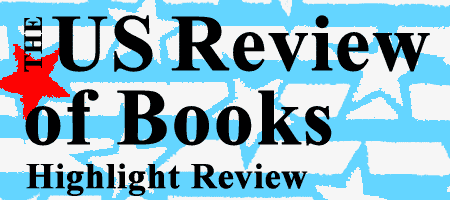
 |
Cain, also known as Thaddeus Drake, wants journalist Emery Merrick to write his biography. Emery, once a Pulitzer award winner, is now washed up and in need of work, so he accepts Drake’s offer. Drake’s is the story of a lifetime—actually, of many lifetimes—beginning when Cain kills his brother Abel at the dawn of time according to the biblical record to an epic, game-changing project in the 2000s. Drake uses X’chasei, his secret organization, to organize Middle East peace talks, train an elite band of unblemished children, and establish one world currency, all to win a fateful, earth-shattering audience with God. Meanwhile, X’chasei’s enemies in the Vatican threaten to undo these plans. While Drake teeters on the precipice of victory, winning another Pulitzer for telling about it turns out to be the last thing Emery wants.
This is an age-old story of good and evil simultaneously played out on multiple levels. God’s blessing of Abel over Cain foreshadows God’s choice for Jesus as his accepted sacrifice. Drake’s revenge plot echoes through the centuries in scores of devastating world events, including Hitler, which the book says he engineered. In the character of Emery, the battle story plays out in every man’s soul. This multi-layered plot effectively draws readers in from many angles.
Chapters taking place worldwide, a timeline that travels between several points throughout history, and mega-rich immortal and mortal characters capture the vast scope of this novel. The plot, however, following Emery as he witnesses the culmination of Drake’s three-pronged project, maintains a pointed direction. The chapters each focus on attaining these goals through force and coercion. The pace is riveting and driving but in a downward spiral. There appears to be no end to the depravity to which Drake will stoop to accomplish his tasks. A lack of viable opponents makes for a tedious fight. The Vatican characters trying to stop Drake’s plan are underdeveloped and, therefore, not worthy opponents against the evil giants.
Emery stands out as fully human and relatable between these two competing forces. As an individual, he must choose between sides beyond his control and comprehension. His soul-searching is palpable, shown in a tragic life story as well as in writing that is as far-reaching and varied as the book. His marriage story is the most personal aspect of the novel, poignant in its subtlety and grip on Emery in his drinking and desperate adherence to Drake. Graphic violent scenes with curt, to-the-point, and impressionistic descriptions, long theological expositions, and spitty dialogue offer wide writing style appeal. In the end, though, the dominant enemy is neither the Vatican nor Drake but a vast and complex world gone awry on every front. The current world problems the book plays on, such as anti-Semitism, financial insecurity, and warring factions at the mercy of business interests, touch a chord and produce a palpable, chilling effect. Emery is this world’s foe, faced with choosing how to act. This devastating novel confronts and provokes readers with the same monumental questions Emery faces, offering little hope and much heartache.
A 2023 Eric Hoffer Book Award Spiritual Fiction Honorable Mention